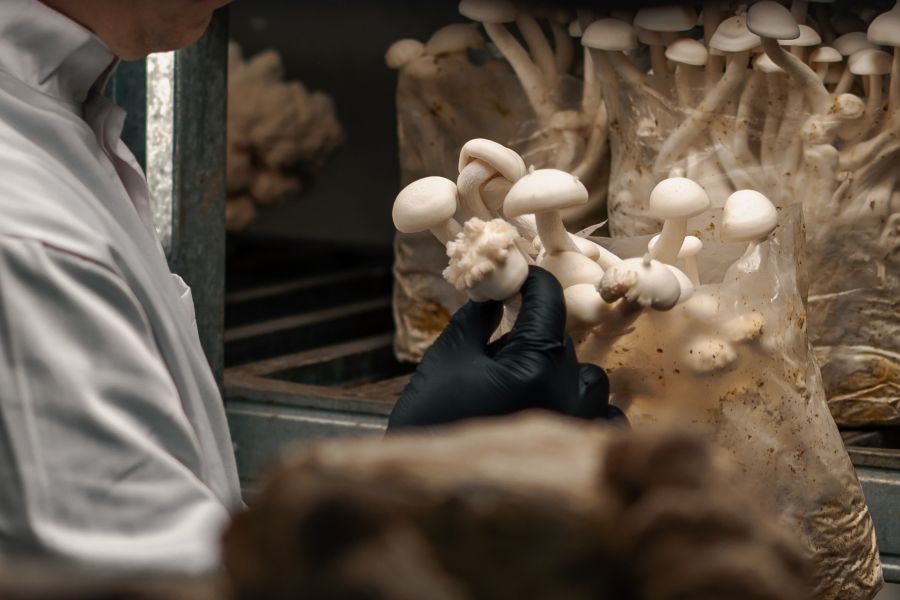University of Maine Develops Sustainable Fungus-Based Coating for Water-Resistant Packaging

Researchers at the University of Maine have pioneered an innovative, eco-friendly solution to replace single-use plastic coatings in packaging. Their study, published in Langmuir, details the development of a water-, oil-, and grease-resistant film derived from the edible fungus Trametes versicolor, commonly known as turkey tail. This natural coating offers a biodegradable alternative to traditional plastic wraps and paper cup linings.
Development of the Fungus-Based Coating
The research team combined the mycelium of T. versicolor with cellulose nanofibrils a component of wood fibers to create a composite material. This mixture was applied to substrates such as paper, denim, polyester felt, and thin wood veneers. Under controlled warm conditions, the fungus grew into a protective layer, imparting hydrophobic properties to the materials. After a growth period of approximately three to four days, the resulting film was thin, flexible, and effective in repelling various liquids, including water, oil, and grease.
The treated materials exhibited significant resistance to liquid absorption. Water droplets placed on the fungus-coated surfaces formed spherical beads, indicating effective water repellency. In contrast, untreated materials allowed water to spread or be absorbed. Additionally, the fungal coating demonstrated resistance to other liquids such as n-heptane, toluene, and castor oil, suggesting its potential for diverse applications beyond food packaging.
While the initial results are promising, scaling the production of this fungal coating presents challenges. Maintaining a sterile environment during the early growth stages is crucial, as contaminants could interfere with fungal development. However, the researchers note that this issue is well-understood in the food and fermentation industries and can be managed using standard practices such as controlled humidity, filtered air, and surface sterilization.
The team is also exploring methods to integrate this process into existing manufacturing systems. Techniques like blade coating and spraying are already employed to apply the fungal mixture, and adapting current roll-to-roll or batch drying lines to include a controlled growth phase could facilitate large-scale production.
Environmental Impact and Sustainability
This innovative approach aligns with growing efforts to reduce reliance on single-use plastics and mitigate environmental pollution. By utilizing natural, biodegradable materials, the fungus-based coating offers a sustainable alternative that could significantly decrease plastic waste in landfills and oceans. Furthermore, the use of renewable resources in the production process enhances the overall sustainability of this packaging solution.
The University of Maine development of a fungus-derived, water-resistant coating represents a significant step toward sustainable packaging solutions. With further optimization and scaling, this technology has the potential to revolutionize the packaging industry by providing an eco-friendly alternative to conventional plastic coatings. As the world continues to seek sustainable practices, innovations like this highlight the potential of nature-inspired solutions in addressing environmental challenges.
Top Stories
- A Simple Guide to Understanding Benefits of Rigid Boxes
- A Packaging Guide for Artisanal and Handmade Product Brand
- UFLEX Expands PET Recyclable Woven Polypropylene Food Packaging to Mexico
- Tetra Pak Launches India’s First Carton Packaging with Certified Recycled Polymers
- PepsiCo Reinforces pep+ Strategy with Sustainable Packaging Goals
- Pact Collective’s NewMatter Program Introduces HDPE Sheets to Revolutionize Cosmetic Packaging
- Look Good Feel Better Launches Third Limited-Edition Beauty Box in Partnership with The Perfume Shop
- JPFL Films Becomes India’s First Manufacturer to Launch BOPA Nylon Films
- Kapag and Sappi Launch Eco-Friendly Mono-Material Solution for Food Packaging
- FoodTech Kerala 2025 Showcases Innovation in Food Processing and Packaging
